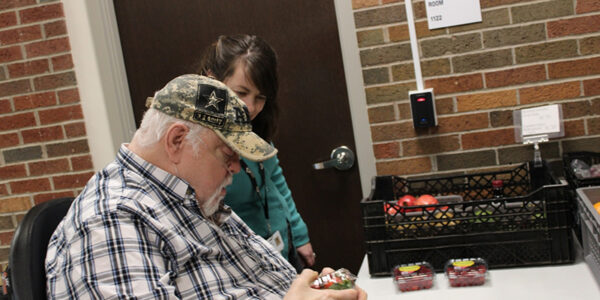Our society often touts the wisdom of elders, while also falling into an unfortunate habit of treating them like children. This practice of talking down to seniors is known as infantilization and can have harmful effects on older individuals’ social, emotional, and mental wellbeing.
As a nonprofit dedicated to promoting healthy and independent living for people 55 years and older, Care Resources wants to help our community learn how to foster dignity and respect when interacting with older adults.
Rachel Sullivan is hyperaware of the negative effects of senior infantilization and advocates for ways to avoid it. In her role as a social worker with the nonprofit, she says an integral part of this process is keeping older adults involved in the decisions of their care.
“We often see caregivers and family members try to take over decision making and life planning for the older adults in their life,” Sullivan says. “While they might need some support, it’s important we remember to invite their input.
“Older adults know their bodies better than anyone else, and they’re very willing to open up and express their needs and preferences. Sometimes it’s just a matter of giving them the time and space to hear their options and respond. Talk to them like the adults they are,” she says. “They have a lot of wisdom and life stories that are rewarding to hear if you get them to open up over normal, adult conversations. Take the time to listen to their experiences, ideas, and concerns.”
To read the full list of suggestions of how to foster dignity and respect the elderly, click here.
Last updated 1.3.2025 I H5610_WEB



